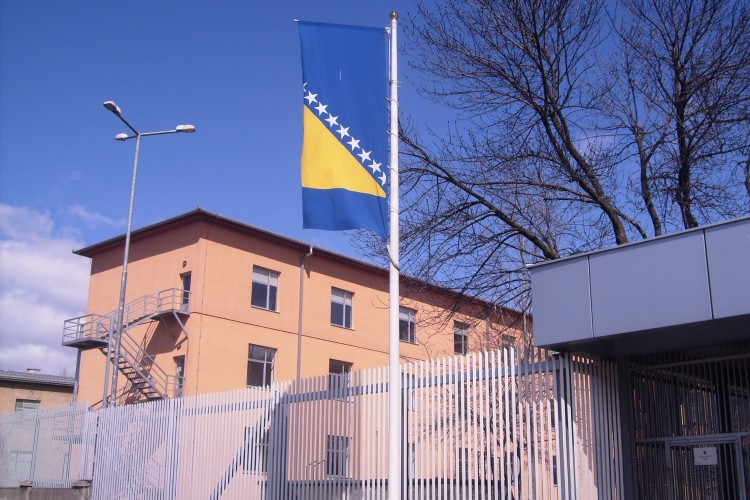 After the International Monetary Fund approved the highly necessary funds, the BiH authorities will have to intensify the implementation of measures from the Reform Agenda. So far, only one part of 79.6 million EUR has been paid. The remaining funds will be paid over the next four years, after quarterly controls that will detect how much was done and the remaining installments will be paid on that basis.
After the International Monetary Fund approved the highly necessary funds, the BiH authorities will have to intensify the implementation of measures from the Reform Agenda. So far, only one part of 79.6 million EUR has been paid. The remaining funds will be paid over the next four years, after quarterly controls that will detect how much was done and the remaining installments will be paid on that basis.
This three-year arrangement with the IMF will help satisfy the needs of balance of payments and facilitate the implementation of structural, fiscal and financial reforms.
In fiscal policy, balance will be established between insurance of mid-term sustainability and creation of space for reorientation of public expenditure towards productive purposes, including investments.
In terms of finance sector policy, efforts will be invested towards preservation of financial stability and revival of credit activity intended for private sector. Fiscal, financial and other structural reforms will help improve business environment and outcomes in the labor market.
The planned reforms are supposed to help improve business climate and enable the private sector to offer its contribution to the growth, through the opening of new workplaces among other things.
Some of the activities that the authorities will have to implement are following:
- REDUCE THE TAX BURDEN ON LABOR
High overall tax burden on labor costs, especially in FBiH, will have to be reduced. An important element is the reduction of the rate of contribution to social insurance in both entities, with simultaneous expansion of base for income tax and social contributions through taxation of all labor incomes (including reimbursements, which should be effective as of January 2017). Authorities will reduce contributions for social insurance in a way that will be neutral for the deficit. Improvements in the administration of taxes will also help compensate for income lost with the reduction of the rate of social contributions;
- IMPROVE THE FUNCTIONING OF THE LABOR MARKET
After the adoption of new entity labor laws, new collective contracts must be agreed upon. New labor laws will have to be supported by reinforced activity of labor inspection, as well as by the strengthening of the system of reimbursements for unemployment and active measures of labor market;
- REDUCE ADMINISTRATIVE BURDEN ON BUSINESS ENTITIES
Among other things, through the convergence of regulations between entities and reduction of parafiscal levies across all levels of authority. In accordance with the reduction of tax burden on labor, contribution for solidarity in Republika Srpska and special contribution for protection against natural and other disasters in FBIH will be abolished. The entities will simplify the regulations that pertain to operations, inter alia by introducing a one-stop system as a solution for registration of business entities in FBiH and convergence of this process between entities;
- IMPROVE CORPORATE MANAGEMENT AND EFFICIENCY OF ENTERPRISES IN STATE OWNERSHIP
Government of FBiH will relaunch the process of privatization with the aim of improving competitiveness and reducing risks for public finances. It classified the corporate enterprises and public enterprises into those that are strategic, into those that require more or less restructuring, and those in which the government has the minority share.
Minority shares in several enterprises will be sold. Status of the remaining corporate enterprises will be solved either through restructuring and possible privatization or through bankruptcy/liquidation. Government of FBiH will also make a financial and operational due diligence analysis for strategically important companies BH Telecom and HT Mostar and discuss possibilities for making these two enterprises either profitable or private. Entity authorities will adopt plans of restructuring for railways by the end of December 2016 and for enterprises in the field of electrical energy and gas during the year 2017;
- IMPROVE BANKRUPTCY PROCESSES AND THE SETTLEMENTS OF LEGAL DISPUTES
The Government of FBiH has already started reforming its framework for settling economic disputes and it will adopt a new law on bankruptcy by the end of September 2016. National Assembly of RS adopted a new law on bankruptcy in February this year. FBiH will make a feasibility study on whether it should establish specialized economy courts, while the RS will improve the functioning of these courts that have already been established, with the aim of accelerating the processing of economic and business disputes;
- COMPLETION OF THE PROCESS OF ACCESSION TO THE WTO AND SOLVING OF TRADE ISSUES WITH THE EU
Three main aims of the program are: structural reforms, fiscal policy and solving of issues in finance sector.
Through structural reforms, authorities will work on increasing economic potentials for growth and stimulation of employment in private sector through intensification of structural reforms that improve business environment and attract investments. Through fiscal policy, it will be worked on improving structure and quality of public expenditure, with gradual reduction of the degree of indebtedness of public sector. Through financial sector, authorities will be working on reviving credit activity of the banking sector, with preservation of financial stability through reforms in finance sector. The arrangement will also help improve coordination and cooperation between authorities in BiH with the aim of strengthening the unique economic space.
(Source: akta.ba)















